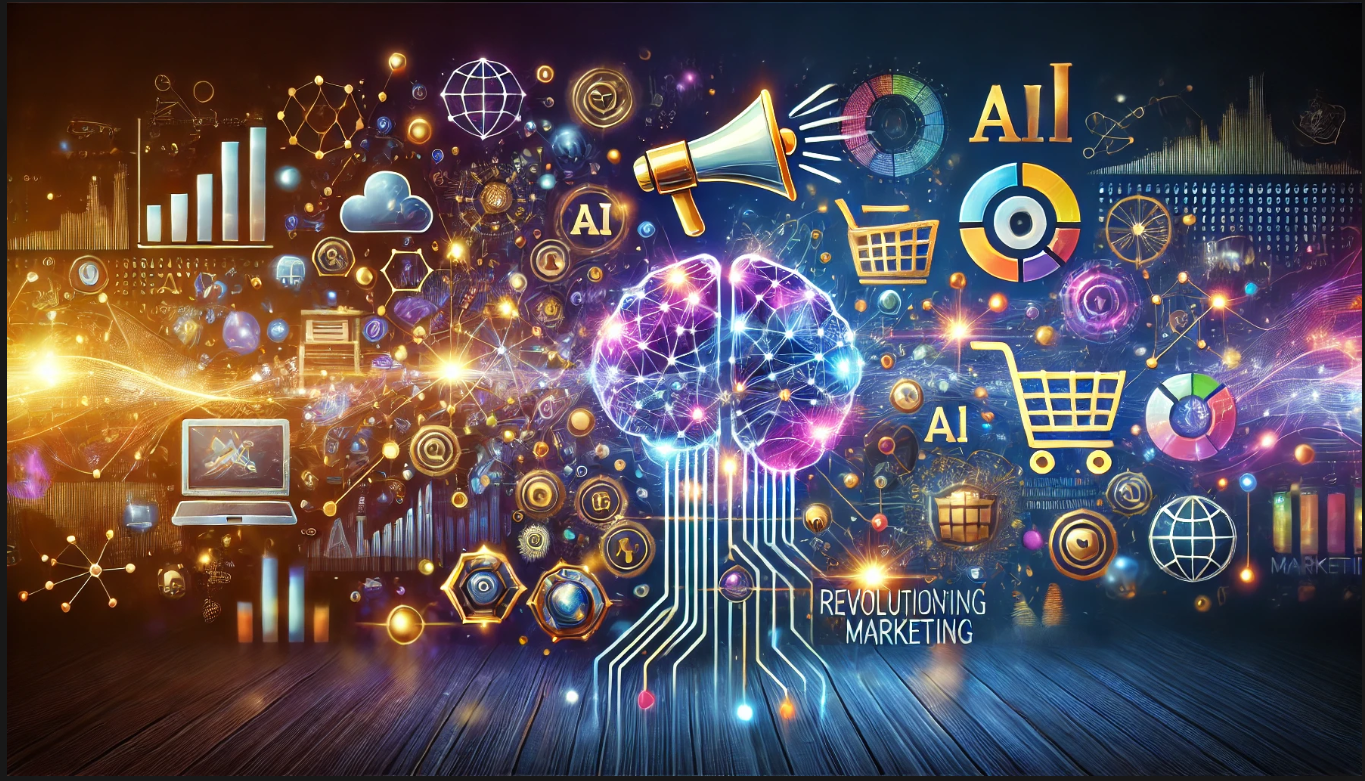Adopting the newest technologies is essential to staying ahead of the curve in the fast-paced field of marketing. Artificial Intelligence (AI) is one of the most revolutionary forces in the industry today. AI is transforming how companies interact with their audiences, from optimising advertising tactics to personalising customer experiences. Let's examine how artificial intelligence is changing marketing and what it means going forward.
Personalized Customer Experiences
Through real-time analysis of massive volumes of data, artificial intelligence (AI) empowers marketers to provide clients with highly customised experiences. AI-powered tools may forecast consumer preferences, divide up audiences, and suggest goods and services based on specific requirements. To create a smooth and interesting shopping experience, e-commerce platforms, for example, utilise AI to recommend products based on browsing history and purchase behaviour.
Enhanced Content Creation
In marketing, content is king, and artificial intelligence is turning out to be a useful ally in the production of content. Time and resources can be saved by using tools like GPT models to create email campaigns, blog posts, and social media captions. AI can also determine which kinds of material are most effective for particular audiences, enabling marketers to adjust their tactics for optimum effect.
Improved Customer Support
AI-powered chatbots and virtual assistants are revolutionising consumer service. These solutions are available around-the-clock, can manage a high volume of enquiries, and offer prompt responses. Artificial intelligence (AI)-powered bots can better comprehend and reply to consumer enquiries by utilising natural language processing (NLP), which increases customer satisfaction and lessens the workload for human agents.
Smarter Advertising Strategies
AI is enabling more intelligent and focused campaigns, which is revolutionising digital advertising. Marketers may utilise AI to instantly optimise ad placements, analyse user behaviour, and spot patterns. In order to maximise return on investment (ROI) and guarantee that adverts reach the correct audience at the right moment, programmatic advertising—the automated purchasing and selling of web ads—heavily relies on artificial intelligence (AI).
Data-Driven Decision Making
One of AI's major advantages is its capacity to process and analyse large datasets. Marketers may learn more about consumer behaviour, marketing effectiveness, and industry trends by utilising analytics solutions driven by artificial intelligence. By facilitating data-driven decision-making, these insights assist companies in honing their tactics and maintaining their competitiveness in a market that is changing quickly.
Challenges and Ethical Considerations
AI has enormous potential, but there are drawbacks as well. To gain customers' trust, issues with data privacy, algorithm bias, and openness must be resolved. Marketers must make sure AI is applied sensibly, emphasising moral behaviour and adherence to laws like the CCPA and GDPR.
The Future of AI in Marketing
AI's influence on marketing will only increase as it develops further. Brand-consumer interactions are about to be redefined by emerging trends like voice search optimisation, augmented reality (AR) experiences, and predictive analytics. Businesses may remain ahead of the competition and produce more successful, individualised, and meaningful marketing efforts by integrating AI.
Artificial intelligence is revolutionising the marketing sector and is no longer merely a trendy term. AI is enabling organisations to reach new heights of productivity and innovation, from personalising consumer interactions to facilitating data-driven decision-making. In the future, incorporating AI into marketing will not only improve consumer experiences but also expand the realm of what is feasible in the corporate sector.
.svg)
.svg)

 For Instructor
For Instructor
